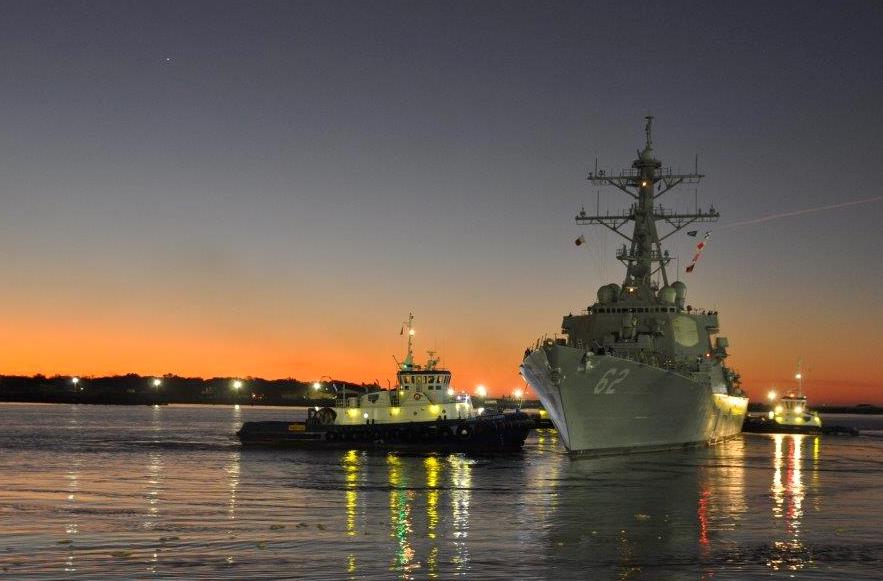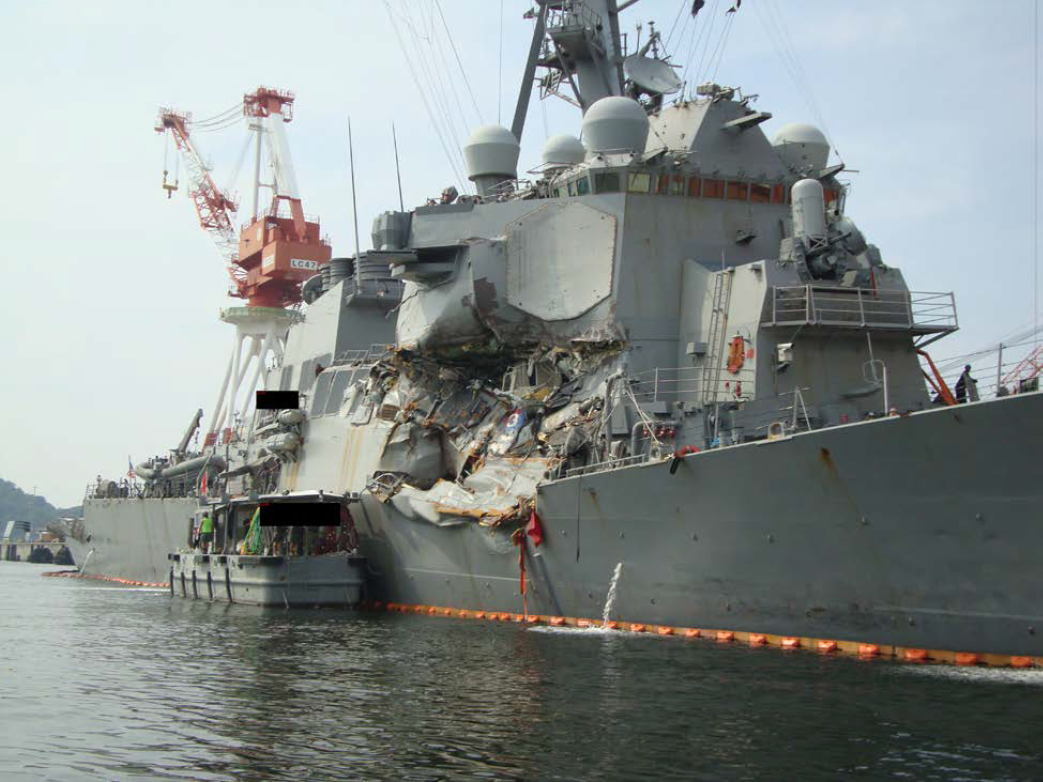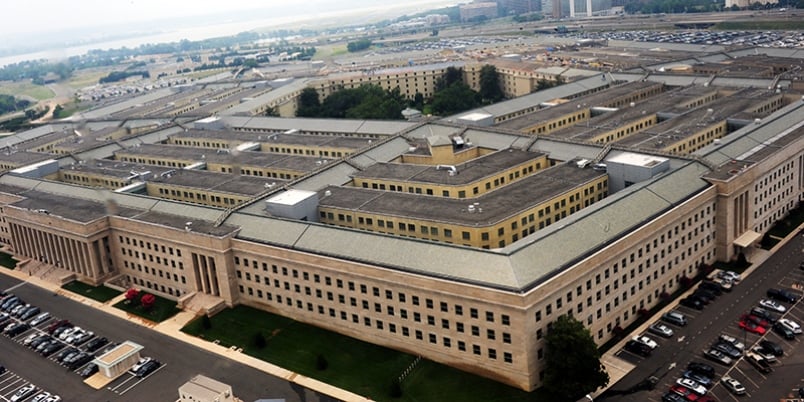
The Navy’s surface warfare community is weighed with a culture that values administrative chores over training to fight, ship commanders that are micromanaged and an aversion to risk, according to a new survey overseen by a retired Navy admiral and Marine general at the behest of a group of Republican lawmakers. That culture was at least partially responsible for a string “of high-profile and damaging operational failures in the Navy’s Surface Warfare community,” the report found.
The study, titled “A Report on the Fighting Culture of the United States Navy Surface Fleet,” surveyed 77 current and recently retired surface sailors “about their insights into the culture of the United States” and how it related to incidents that included the 2017 fatal collisions in the Western Pacific that killed 17 sailors, the 2016 incident in which the crews of two Navy patrol boats were captured by Iranian forces in the Persian Gulf and the pier-side fire that resulted in the total loss of the former amphibious warship USS Bonhomme Richard (LHD-6).
“When asked whether incidents such as the two destroyer collisions in the Pacific, the surrender of a small craft to the IRGC in the [Persian] Gulf, the burning of the Bonhomme Richard and other incidents were part of a broader cultural or leadership problem in the Navy, 94 percent of interviewees responded ‘yes’,” reads the report. Fifty-five percent said there was a direct connection between leadership, culture and the incidents.
The study – sponsored by Sen. Tom Cotton (R-Ark.), Rep. Jim Banks (R-Ind.), Rep. Dan Crenshaw (R-Texas) and Rep. Mike Gallagher (R-Wis.) – was conducted by retired Marine Lt. Gen. Robert Schmidle and retired Rear Adm. Mark Montgomery, without the direct participation of the Navy and was released a day ahead of the Senate Armed Services Committee’s confirmation hearing for Navy Secretary nominee Carlos Del Toro and a year after the Bonhomme Richard fire.
The goal “was to establish if these incidents were part of a series of isolated, unit-level breakdowns, or if they instead indicate larger institutional issues that are degrading the performance of the entire naval surface force,” reads the survey.
“There was a broad consensus across interviewees on numerous cultural and structural issues that impact the morale and readiness of the Navy’s surface force. These include: an insufficient focus on warfighting skills, the perception of a zero-defect mentality accompanied by a culture of micromanagement, and over-sensitivity and responsiveness to modern media culture. Structural issues identified include lack of resources and consistency in surface warfare training programs, and the Navy’s underwhelming commitment to surface ship maintenance—a problem that spans decades.”
Navy officials acknowledged the report in a statement to USNI News.
“We welcome the insights and report findings, many of which are consistent with areas we have addressed and taken action on,” Rear Adm. Charlie Brown said in a statement to USNI News.
“We look forward to continuing our work with Congress to ensure we have the most capable ships crewed by the most capable sailors, as well as a surface force that is fit for the challenges of the 21st century.”
The Navy and government agencies have reached similar conclusions in several reports and investigations, most recently in the Government Accountability Office’s recent report on surface warfare retention.
Chief among the issues for the surface sailors surveyed was the emphasis on mounting administrative duties rather than preparing ships to fight, reads the report.

“The very difficult problem for an O5 CO (commanding officer) is that he’s got 1,000 requirements pushed on him, many of which are administrative or operational…and so his real job is figuring out which requirements he’s just going to blow off…whether it be fixing a material issue or training or warfighting readiness,” one officer told the survey team.
“This has always been an issue for commanders. However, it has been exacerbated due to the absence of a peer threat for a generation and thus lacks an apparent operational imperative to support a commander’s decision to prioritize warfighting.”
One officer said there was a lack of training and focus in the fleet of what conflict with China or another peer adversary could look like.
“What are the things the Chinese are concerned about? What are the things the Iranians are concerned about? [The] Intel folks know that, but like there’s no general education about, ‘What are the wars we could fight, and how do we understand the context of these so we get in combat.’ We can have both the cultural and political understanding as well as the warfighting implications. And to me, if we’re focused on the front-line warfighting, we should know the worst we’re going into and what the greater context is,” one officer told the survey team.
“There’s none of that right now.”
One commander told the survey team that the burden of administrative tasks and their completion bleed over into training to fight.
“The Navy treats warfighting readiness as a compliance issue,” a commander told the survey team.
“You might even use the term compliance-centered warfare as opposed to adversary-centered warfare or warfighter-centered warfare.”
Those surveyed also cited the Navy’s so-called “zero defect” mentality in creating a careerist environment that is risk-averse and intolerant of one-off mistakes, in addition to the fear of negative media stories ruining careers.
“This was noticed during the disciplinary actions following the USS McCain and USS Fitzgerald incidents, where perception was that the military administered discipline based on public and Congressional outcry rather than the concrete root causes of both unique incidents,” reads the report.
Specifically, officers aboard both ships were initially charged criminally with negligent homicide after the two separate fatal collisions, but the charges were later withdrawn.
While the report spends time on the symptoms of cultural and leadership climate in the service, it does not say much on root causes.
For example, the survey doesn’t address the leadership cull as the result of the ongoing federal criminal corruption case against Leonard “Fat Leonard” Francis.
Past and current officers in the Navy continue to tell USNI News the after-effects of the Department of Justice’s Fat Leonard prosecution – now in its eighth year – are still being felt. Hundreds of careers ended or were stalled during the course of the investigation, with officers timing out of jobs waiting to get cleared of the investigation.
“It’s really been pretty devastating to the upper ranks of the Navy,” former Secretary of the Navy Mabus told USNI News.

The Navy also was cautious with how it dealt with what former Chief of Naval Operations Adm. John Richardson called the ethical equivalent of “jaywalking” in 2017. Several senior captains and one- and two-star admirals were given a non-punitive letter of caution for offenses like paying too little for a dinner or accepting unsolicited gifts. The NPLOCs in turn stopped those careers. Montgomery himself was implicated in the GDMA investigation and censured by former Secretary of the Navy Richard V. Spencer. Montgomery denied any criminal wrongdoing in an interview with USNI News in 2018.
“China could never have dreamt up a way to do this much damage to the U.S. Navy’s Pacific leadership,” a senior U.S. Pacific Command staffer told a group of Australians in 2018.
Additionally, the fallout from the collisions of Fitzgerald and McCain in 2017 removed several flag officers that were expected to take senior leadership roles in the Pacific.
The report offered recommendations to reduce administrative tasks at sea, expand wargaming and surface warfare training, encourage more risk-taking and limit social media use for sailors.





